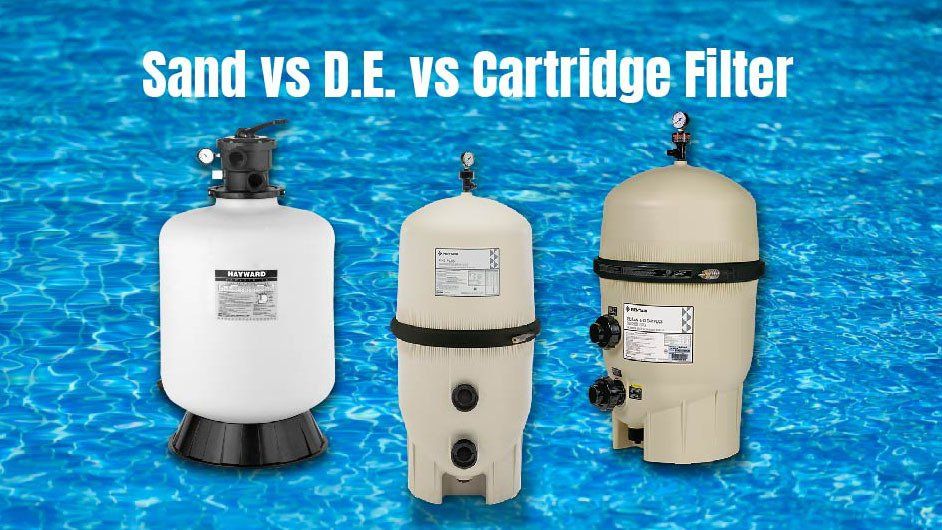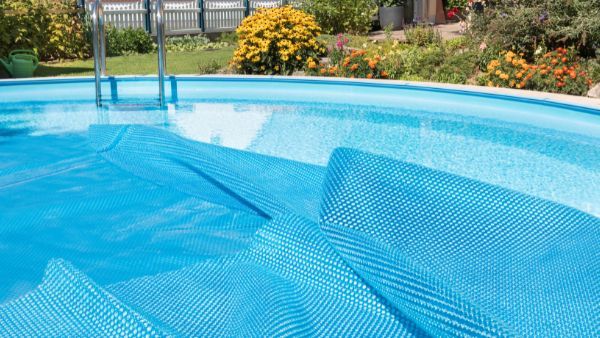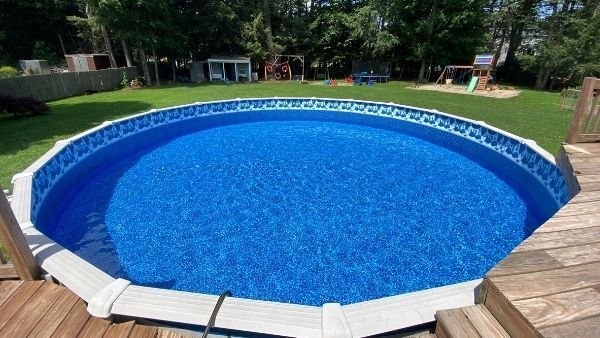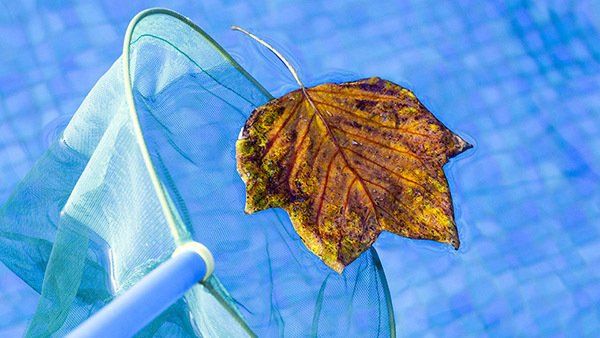What’s the Best Above Ground Pool Filter: Sand, Cartridge, or D.E. Filter
No matter how well you maintain your pool’s chemical balance and sanitizer levels, unless your pool has a filter, all the debris and contaminants swim with you in the water.
But each filter is different when it comes to cost, maintenance, and materials involved. What works best for one pool may not necessarily work best for another. A lot of that comes down to personal preference and how you will maintain your filter.
Here’s the guide to the best above ground pool filters and how to pick the right one for you.
What You Need to Know About Debris
Chlorine or other alternative sanitizing chemicals you use in your pool kill the bacteria and algae that exist within it. But it just kills them, it doesn’t take them out of the water.
Your pool’s filter is there to get rid of the debris and keep your water from becoming cloudy. But here’s the thing, bacteria is really, really tiny. Like 2 microns tiny. How big is a micron? Well, for reference, the width of one human hair is about 70 to 200 microns.
So the only way to actually pull dead bacteria out of the water is with a very fine filter. Make sure you maintain proper sanitizing levels in your pool to kill the bacteria living there.
Sand Filters
Sand filters are relatively inexpensive for pool filters. They’re low maintenance as you don’t have to take them apart for cleaning, but the sand needs to be replaced every 5 to 7 years. They only filter particles as fine as 20 microns.
Most sand filters have a pressure gauge on the outside of the filter, which will help determine when it’s time to clean the filter. You should backwash the filter once every 2 weeks at a minimum or you can cause the sand to become compacted. This will make it difficult to do a good backwash and may result in quick plugging of the filter or breakage of the laterals.
While many pool owners backwash their filters weekly as part of routine maintenance, you should backwash anytime the gauge reads 5 PSI above the original start-up pressure or when the pressure coming from the return is weak.
Using a sand filter means that you will likely need to replace some water in your pool after backwashing the filter. As a result, you will have to add chemicals to the pool to rebalance more often than for a cartridge filter. This can be significant for smaller above ground pools.
Cartridge Filters
Cartridge filters are inexpensive and easy to maintain. These filters are cleaned by removing the filter and spraying it down with a hose. You only need to do this when the filter pressure increases by 5 PSI or the return pressure is weak.
Cartridge filters are also more efficient than sand filters - they can filter out particles as small as 10 microns.
However, you need to deep clean cartridge filters once or twice a year. Most cartridge filters only last about two to three years, but some can last twice as long.
Cartridge filters work well and reduce the need for rebalancing your pool. However, cleaning can be a bit of a pain. This is an issue in the spring for some people, as cartridges may need to be cleaned daily or every other day at startup.
D.E. Filters
D.E. stands for diatomaceous earth. It’s made with powdered, fossilized, tiny aquatic creatures that are specially heat-treated to work with the filter.
D.E. filters are slightly more expensive when it comes to maintenance. But they’re the only filters that can filter out debris as small as 5 microns. So if you’re particularly worried about keeping your pool clean, consider a D.E. filter.
Keep in mind some cities and provinces may have laws against backwashing or particular methods of cleaning a D.E. filter. Improperly disposed, D.E. filters can clog storm drains and suffocate fish eggs. Make sure to check your municipal codes.
D.E. filters come in two major types; those with backwash capabilities, and those without. The ones without offer all the benefits of a cartridge filter, plus improved filtration and are easier to clean than a cartridge.
Those with backwash capabilities offer all the ease of cleaning that comes with a sand filter but with much better efficiency in cleaning and less need to backwash - only clean when pressure rises. D.E. filters last many years without needing repairs or replacement, usually 10 or more.
The Best Above Ground Pool Filter Will Depend on Your Pool’s Needs
Above ground pool filters vary in composition, lifetime, and maintenance. Depending on the size of your pool, pool pump, and time you can dedicate to maintain the filter will dictate the type of filter you need.
If you need assistance in choosing the right filtration system contact us or visit our store at 3 Newton Junction Road, Kingston NH.





